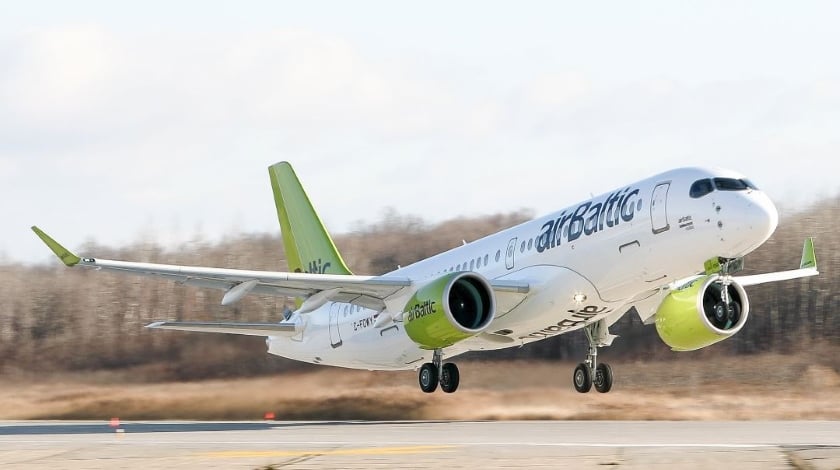Photo: airBaltic
Reading Time: < 1 minuteLatvian airline airBaltic has fully implemented the E-GEN project, which has been aimed to further improve its green flying, as it sets out to reduce emissions and improve efficiency.
The project has enabled airBaltic to upgrade the satellite navigation systems on its Bombardier Q400 NextGen fleet. As a result, airBaltic has implemented the highest precision approach procedures, improving its fuel efficiency and permitting landings that are more reliable.
Pauls Cālītis, Senior Vice President Flight Operations of airBaltic: “As an innovative company, airBaltic is always striving to increase its efficiency and benefit from the most modern technology available. We are proud to have successfully implemented this modernization program with the cooperation of EU and the European GNSS Agency (GSA) co-financing and having paved the way for other European airlines to follow in our footsteps,” Pauls Cālītis added.
The project was launched in September 2015 and technical activities of it have been successfully concluded this year. Since implementation, airBaltic has performed already more than 500 highest precision approaches across Europe.
The E-GEN project is co-financed by the GSA and will enable the entire airBaltic fleet to use satellite-guided approaches.
EGNOS, the European Geostationary Overlay Service, is a satellite based augmentation system improving the signal of the current GPS system. The increased accuracy and integrity provided by EGNOS enables satellite based instrument approach procedures with vertical and lateral guidance, LPV200, equivalent to ILS CAT I.
This will offer additional benefits for the customer, as it improves airBaltic operations in marginal weather conditions, reduces fuel burn, emissions, and the noise level in the airport neighbourhoods. In addition, EGNOS can support ADS-B out as navigation source.

